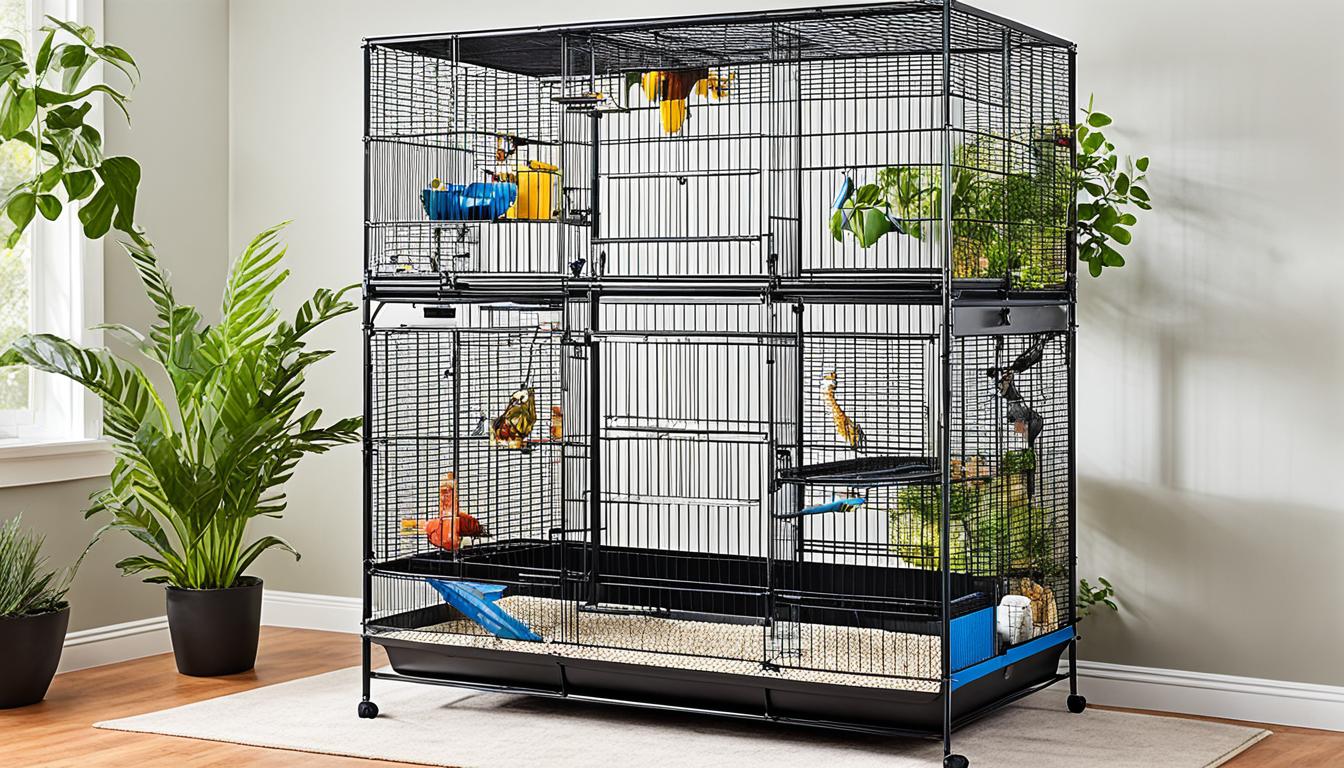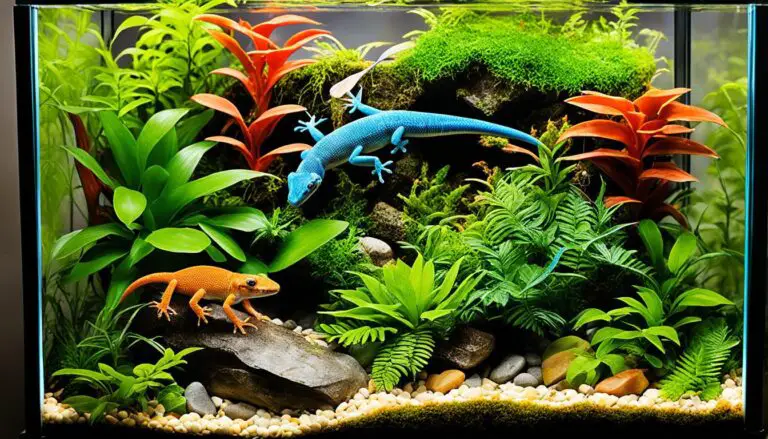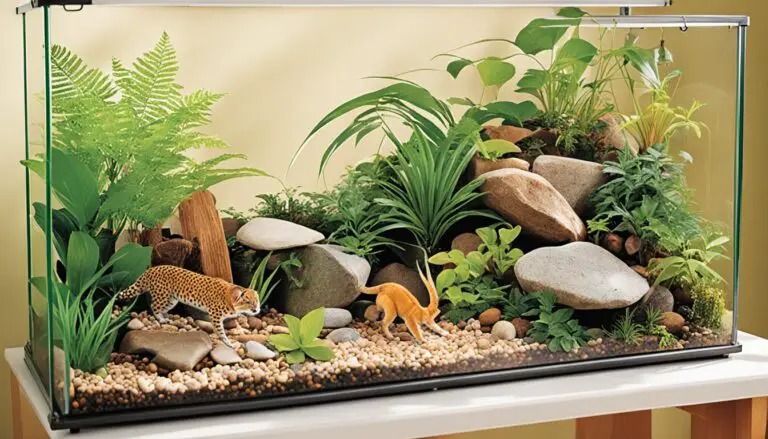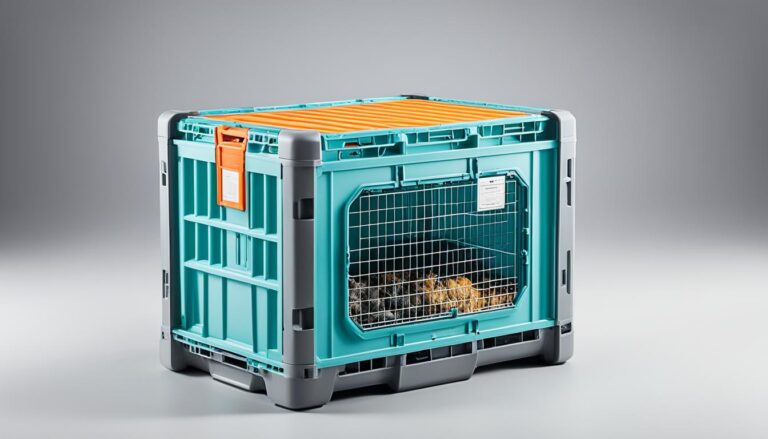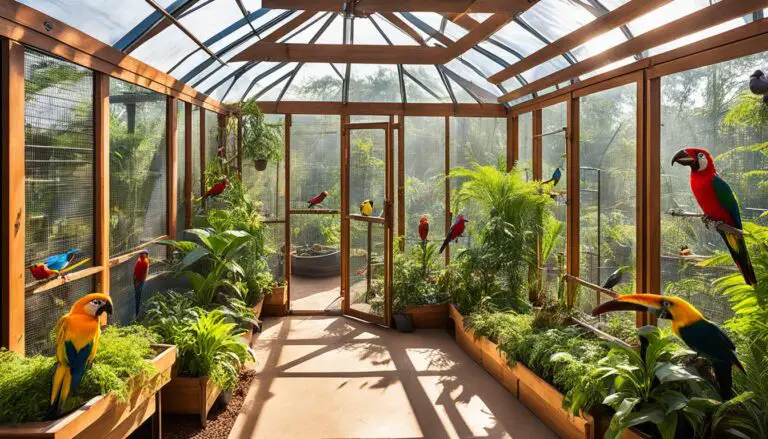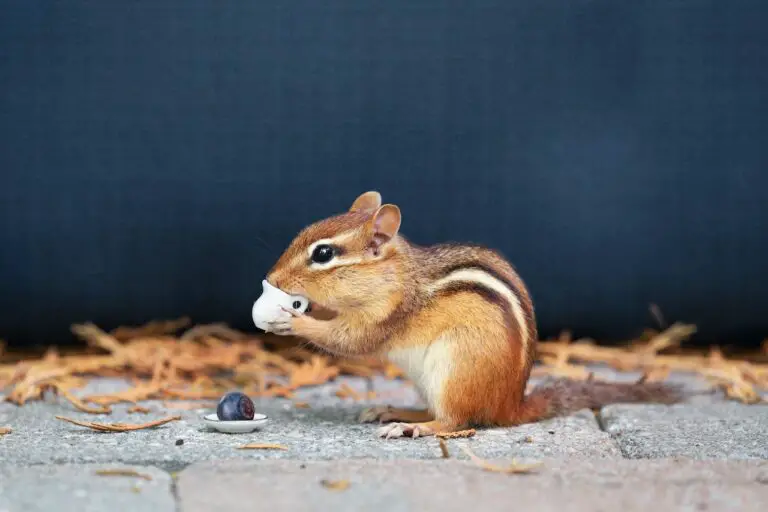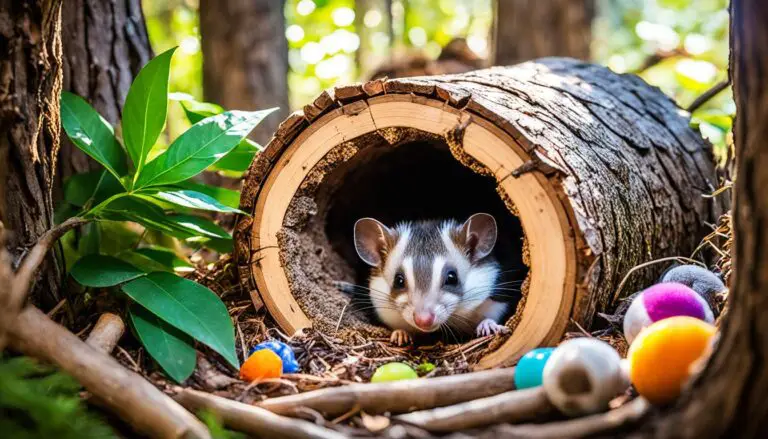Exotic Pet Cage Requirements: Essential Tips
Owning an exotic pet comes with specialized care requirements. To provide optimal care for your exotic pet, understanding their species-specific needs and natural behavior is crucial. This article will provide you with essential tips on exotic pet cage requirements and how to meet your pet’s unique needs.
Key Takeaways:
- Thoroughly research the specific needs of your exotic pet before bringing them home.
- Adapt your lifestyle to meet their needs and provide specialized care.
- Understand their natural behavior, lifespan, and potential health risks.
- Create a cage or enclosure that mimics their natural habitat.
- Consider factors like temperature, humidity, light exposure, and substrate type for their housing.
Housing Your Exotic Pet: More than Just a Cage
Exotic pets require specialized housing that goes beyond a basic cage or enclosure. To ensure their health and well-being, it is important to create an environment that closely mimics their natural habitat. By considering factors such as temperature and humidity levels, light exposure, and substrate type, you can prevent stress and health problems while allowing your pet to exhibit their natural behaviors.
Temperature and humidity levels play a crucial role in the comfort and survival of your exotic pet. Research the specific requirements of your pet’s species to determine the optimal range. Use a thermometer and hygrometer to monitor and maintain the appropriate levels in their enclosure.
Light exposure is essential for many exotic pets as it impacts their biological functions and overall well-being. Provide appropriate lighting for your pet’s species, ensuring they receive the right balance of natural and artificial light. This can be achieved using full-spectrum UVB bulbs or natural sunlight, depending on the specific needs of your pet.
The choice of substrate is another important consideration when setting up your pet’s enclosure. Some animals prefer a dry substrate, such as sand or paper bedding, while others thrive in a more moist environment with options like coconut fiber or moss. Research and select a substrate that best suits your pet’s natural habitat and promotes their comfort.
Creating a habitat that closely resembles their natural environment not only provides physical comfort but also promotes the expression of natural behaviors. This is essential for the mental and emotional well-being of your exotic pet.
Image:

Essential Dietary Needs of Exotic Pets
Exotic pets, such as iguanas and parrots, have unique dietary needs that differ from traditional pets like dogs and cats. Providing a species-appropriate diet is crucial for their health and well-being. Let’s explore the specialized diets and veterinary care necessary to maintain an exotic pet’s optimal health.
Species-Appropriate Diet
Each exotic pet requires a diet tailored to their specific needs. For example, an iguana’s diet primarily consists of fresh vegetables and fruits, while a parrot requires a combination of seeds, fruits, and insects. It’s essential to research and understand the dietary requirements of your exotic pet to ensure they receive the necessary nutrients. A species-appropriate diet helps maintain their overall health, supports their immune system, and promotes natural behaviors.
Here’s a table outlining the recommended diet for common exotic pets:
| Exotic Pet | Recommended Diet |
|---|---|
| Iguana | Fresh vegetables and fruits, such as collard greens, kale, and bananas |
| Parrot | Seeds, nuts, fruits, and occasional insects |
| Tortoise | Leafy greens, vegetables, and occasional fruits |
Remember to consult with a veterinarian or a reputable exotic pet specialist for specific dietary recommendations based on your pet’s species and individual needs.
Veterinary Care
Regular veterinary check-ups are vital to ensure your exotic pet’s dietary needs are being met. Exotic pets may have unique health requirements, and routine examinations help identify any underlying issues or deficiencies that could impact their overall well-being. During these visits, the veterinarian can provide guidance on proper nutrition, address any concerns, and recommend supplements if necessary. Additionally, they can assess the pet’s weight, monitor growth, and propose adjustments to the diet as needed.
By prioritizing a species-appropriate diet and regular veterinary care, you can ensure that your exotic pet receives the nutrition and medical attention they require to thrive.

“A well-balanced and species-appropriate diet is crucial for the overall health and longevity of exotic pets. Providing a varied and nutritious diet allows them to exhibit natural behaviors and reduces the risk of health issues.” – Dr. Samantha Williams, Exotic Pet Veterinarian
Safely Handling Your Exotic Pet
Handling techniques for exotic pets require a gentle and confident approach to prevent stress or injury. Unlike traditional pets, these unique creatures may have specific needs when it comes to handling. Follow these tips to ensure the well-being of your exotic pet and build a trusting relationship:
- Always approach your exotic pet calmly and quietly, using soothing tones to create a sense of security.
- Use gentle movements and avoid sudden gestures that may startle or frighten your pet.
- Take your time to develop trust and allow your pet to approach you willingly.
- Supervise interactions between your exotic pet and children, as they may unintentionally mishandle or harm them.
- Never grab or squeeze your exotic pet tightly. Instead, support their body and be mindful of their delicate nature.
Remember, handling your exotic pet is an opportunity to strengthen the bond between you. It is essential to handle them with care and respect their boundaries to prevent stress and ensure their well-being.
Handling your exotic pet gently and confidently will gradually build their trust, making future interactions more enjoyable for both of you.
Conclusion
Providing optimal care for your exotic pet is essential to ensure their health and happiness. From thorough research to reliable veterinary care, meeting their specific needs is of utmost importance. By understanding and implementing the necessary measures, you can create a nurturing environment that promotes the well-being of your exotic pet.
Specialized housing plays a vital role in replicating their natural habitat and preventing stress or health problems. By considering factors such as temperature, humidity, and light exposure, you can create a comfortable living space that caters to their species-specific needs.
Additionally, offering a species-appropriate diet is crucial for their overall health. Whether it’s fresh vegetables and fruits for an iguana or seeds and insects for a parrot, providing the right balance of nutrients is imperative. Regular veterinary check-ups can further ensure that their dietary needs are being met and any potential health concerns are addressed in a timely manner.
For safe interactions, gentle and confident handling techniques should be employed. Building trust with your exotic pet and supervising children around them are key to prevent stress or injury. Remember that these remarkable creatures require expert care, so seeking advice from a veterinarian who specializes in exotic pets is highly recommended for their well-being.
With the right care, attention, and expert advice, your exotic pet can thrive and become a cherished member of your family. Prioritizing their optimal care, health, and happiness will undoubtedly create a nurturing and fulfilling bond that lasts a lifetime.
FAQ
What are the essential tips for exotic pet cage requirements?
Why is housing important for exotic pets?
What are the essential dietary needs of exotic pets?
How should I safely handle my exotic pet?
What is the conclusion for optimal exotic pet care?
Source Links
- https://animalfamilyveterinarycare.com/blog/exotic-pet-care-davenport/
- https://vethotspot.com/2023/08/24/creating-an-ideal-habitat-for-your-exotic-pet/
- https://www.tampavet.com/exotics-blog/husbandry/
Peter Stones is the founder of Exotic Pets Place, the leading online resource for exotic pet care information.
With over 10 years of hands-on exotic pet ownership experience, he is deeply passionate about sharing his expertise to help others properly care for their unusual pets.
When he's not writing extensively researched articles or connecting with fellow exotic pet enthusiasts worldwide, you can find Peter at home tending to his own beloved menagerie of exotic animals.

